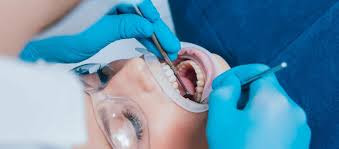The lack of effective policies regarding the maintenance of oral health in hospitals helps to increase systemic diseases and damages to the patients’ health.
The dentist plays a key role in diagnosing, planning, and conducting clinical interdisciplinary approaches focused on the quality of life of these patients. The aim of the current study is to discuss the difference between dentists & Dental surgeon in Vasundhara Ghaziabad.
Comparing Dentist to Dental Surgeon
Dentists are dental health professionals that most people are treated during their lifetime. Dental surgeons also provide dental care to patients, but they see patients who have conditions that must be treated by having dental surgery. Click here to book doctor appointment in Ghaziabad.
Responsibilities of Dentist vs. Dental Surgeon
Dentists and dental surgeons are professionals who are involved with the oral health care of their patients. Dentists perform routine check-ups on their patients and monitor their dental health.
They treat dental cases, such as cavities, and they may also educate their patients about how to improve their dental health. Dental surgeons see patients who have deformities or other issues related to their dental health. They perform surgery on the patients they see to correct specific dental issues.
Dentist
Dentists specialize in treating patients' teeth. They may also address other mouth-related health cases, such as gum disease. Dentists primarily work in dentists' offices/clinics, and may generally follow daytime hours with occasional evening and weekend shifts. Dentists are at risk of exposure to communicable illnesses so it is important that they work in sterile environments and use protective equipment. Click here to book doctor appointment in Ghaziabad.
Their work involves standing and bending while they treat patients. They need to have a Doctor of Dentistry degree and must be licensed.
Job responsibilities of a dentist include:
- Talk to patients about their dental health
- Determine if x rays are needed
- Treat patients with cavities
- Order dentures for patients
- Prescribe medication
- Refer patients to dental surgeons or other specialists
Dental Surgeon
Dental surgeon in Vasundhara Ghaziabad must have a Doctor of Dental Surgery degree, as well as a license for their specialty. Part of their training includes completing a residency. Since they perform surgery on patients they are required to work in sterile environments in medical facilities, and their work can involve standing for long periods of time.
As surgeons, they also need exceptional fine motor skills, since they must be very precise when making incisions or stitching patients.
Job responsibilities of a dental surgeon include:
- Reviewing patients' dental records
- Diagnosing patients' dental conditions
- Determining the type of surgery needed
- Extracting teeth
- Prescribing medication
The dental surgeon working in the hospital environment
- Dental surgeons can work as health consultants and service providers in hospitals through the implementation of training, qualification, preventive guidelines and assisted practice instructions, which must be followed by the qualitative assessment of these conducts to improve services and direct specific needs.
- The assessment of both the oral condition and the need for dental treatment in hospitalized patients requires the follow-up to be conducted by a qualified dental surgeon with hospital experience. Preventive clinical conduct, as well as conducts to assess oral health, oral lesions, and other oral changes that may represent some risk or discomfort to patients, are part of the dental surgeon’s responsibility.
- As an attempt to reduce and eliminate the increased rate of systemic diseases related to oral health issues, the presence of the dental surgeon in the hospital’s most diverse sectors is necessary in order to support the diagnosis of oral issues.
- Dental
surgeon in Vasundhara Ghaziabad may also work as
partners in medical therapies comprising either emergency and preventive
procedures, in the treatment of worsened systemic conditions or hospital
infections, in curative treatments, as well as in oral environment
restorative and adjustment treatments as ways to provide greater comfort
to patients.






No comments:
Post a Comment